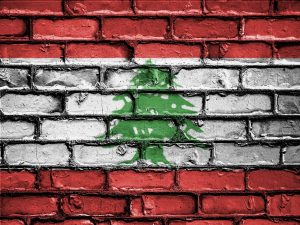In the complex socio-economic and political landscape of Lebanon, youth face immense challenges. In dealing with multifaceted crises, mental health and education are two of the areas that suffer disproportionately under the pressures of the current context. Recognizing this, DIGNITY – Danish Institute Against Torture, in partnership with Restart Center and First Step Together Association (FISTA), launched a transformative pilot project aimed at integrating mental health support into educational systems and curricula for Lebanese and refugee youth. Funded by the Novo Nordisk Foundation, this two-year initiative not only addressed pressing mental health needs but also set the stage for broader systemic change.

Lebanon’s compounded crises—economic collapse, political instability, and the long-term impact of hosting a large refugee population, all compounded by the outbreak of war—have significantly strained mental health resources. Youth, in particular, bear the brunt of this burden, with limited access to services and a heightened risk of trauma-related disorders such as PTSD and depression. The Lebanese education system is ill-equipped to support youth in navigating such complex challenges outside the classroom, despite the impacts of mental distress on learning, knowledge retention, and behavior towards fellow students and school staff.
In answer to these seemingly insurmountable hurdles, the project consortium recognized an urgent need for a contextualized, trauma-informed approach to providing education interwoven with mental health and psychological support. The program was uniquely designed to address both the immediate mental health needs of youth and the structural barriers within schools and communities that hinder educational access and success.
The project adopted a multi-faceted approach, engaging youth, educators, caregivers, and community stakeholders:
Mental Health Services:
Capacity Building:
Community Engagement:
Innovative Adjustments:
Against this backdrop, Catalystas Consulting was commissioned to conduct a final evaluation of the program, with a learning lens and forward-thinking, solutions oriented approach to building on this pilot for future interventions.

The evaluation process for this project was structured to ensure a comprehensive assessment of its impact, relevance, coherence, and efficiency. Our team, led by Lebanese MHPSS specialists Noura Amkieh and Hussein Kleit, with remote support from Evaluation Expert Aviva Stein, employed a participatory and trauma-informed approach, incorporating data collection methods designed to align with the project’s context and objectives.
Utilizing a mixed methods approach of qualitative and quantitative data collection, our team conducted Key Informant Interviews (KIIs) and Focus Group Discussions (FGDs), alongside desk review of project documentation. These tools were tailored to gather insights from diverse stakeholders, including project staff, teachers, therapists, caregivers, and advisory groups. Our Impact Assessment methodology, refined from an original approach of combining Impact Assessment and Contribution Analysis, prioritized qualitative data to explore behavioral and systemic changes beyond numerical metrics.
Trauma-informed practices were central to the evaluation, ensuring a safe and respectful environment for participants. This included obtaining informed consent, using sensitive questioning techniques, and providing access to mental health resources for participants. The evaluation team prioritized emotional well-being by offering participants access to Lebanon’s national mental health hotline and providing educational resources for youth in need of psychological support. Therapists and educational psychologists were also engaged to assist participants when necessary.
The volatile socio-political environment in Lebanon, coupled with unforeseen events during the evaluation period, necessitated significant adaptations to the evaluation process. As a team with a long history of working in complex and rapidly changing environments, including conflict zones, we were ready to shift our approach as needed, working in close communication with the consortium to keep them informed, and ensure everyone’s safety to the utmost degree.
In response to the escalation of armed conflict in late 2023, which significantly disrupted planned in-person data collection activities, our experts transitioned to online interviews and FGDs to prioritize the safety of participants and evaluators. Concurrently, due to delays in delivery of anticipated research results, we adapted the scope of the evaluation, focusing more heavily on existing reports and data previously gathered by the partners, as well as emphasizing the importance of primary data collection with teachers, school staff, caregivers, and counselors. Random and purposeful sampling strategies were combined to ensure representation across stakeholder groups, although challenges were faced in accessing high level government and multilateral institutional actors.

Ultimately, despite the formidable context, our team was able to produce a robust final report, highlighting the key findings on successes, challenges, and opportunities for improvement, culminating in a set of highly actionable recommendations with a clear pathway for implementation. Our flexibility as a team allowed us to pivot as needed as the situation evolved, and our prioritization of consistent and clear communication – both internally among our team, and with the DIGNITY consortium partners – facilitated rapid shifting and adaptation, without having any unpleasant surprises emerge in the final stage.
While the consortium and the communities they served faced – and continue to face – numerous hurdles in this intense conflict-affected environment, the project successfully navigated the complexities of the Lebanese context, delivering meaningful, trauma-informed, and context-sensitive interventions. Prioritizing flexibility and community-driven adaptations, pivot activities based on real-time feedback and changing circumstances proved essential, with the expansion of services to meet immediate community needs ensuring continued relevance and impact. In the same vein, regular engagement with beneficiaries and stakeholders helped maintain trust, even during times of upheaval, underscoring the importance of transparent and consistent communication. While this project had as a relatively short timeline of only two years, and there remains much work to be done at the systemic level to integrate a robust MHPSS model into the Lebanese education system, this was a strong foundational step, and Catalystas is confident in the DIGNITY consortium’s ability to continue to provide highly effective and relevant support to Lebanese youth and their communities.
Amélie is a French-Canadian strategic development consultant with over 15 years of international experience on all continents, with the past six years focused on Asia Pacific and East Africa. Former social entrepreneur, regional NGO exec, researcher and lawyer-by-trade among other titles; she is a diverse professional currently based in Nairobi, Kenya. Amélie has worked in consulting on and off for 11 years across a range of industries and sectors, and has notably provided multiple market penetration and M&E analysis services, as well as risk assessments on the topics of forced labor and child labor in supply chains in Africa and in Asia.
Amélie completed her law degree in Quebec, Canada, and holds a Masters in International Law gained in Beijing, China. She has worked with organizations including the Thomson Reuters Foundation as Asia Pacific Manager (2019-2021), where she managed a portfolio of 250+ human rights research and advisory projects, prior to which she co-founded a social enterprise in the renewable energy sector in Rwanda, on the border of the DRC.
Amélie is proud to dedicate her time to driving social change through economic development and sustainable growth projects concretely in Southeast Asia and East Africa, and globally virtually. Amelie loves travelling, eating, and getting out of her comfort zone.
We built Lysta as an answer to one of our own problems: the need to quickly assemble teams of experts across various subject matter, geographic, linguistic, and thematic areas for projects and proposals as they arise. We quickly realized that we were not the only ones facing this challenge! With the speed that development projects require hiring, turnaround, and technical insights, we see first hand how helpful it is to have a ready-made database of vetted experts to call on.
For existing and potential Clients, you can access all consultant full profiles by signing up here as a client for free.
For consultants, adding your profile to Lysta means jumping to the top of the list for our clients in recruitment processes. We do the heavy lifting: the CV reviews, interviews, vetting, and personnel management; so when our clients come to us, they know they’re hiring someone they can trust to deliver high quality, timely results. Click here to add your profile for review.
We’re proud to be a link in the chain that connects the best of the best – don’t hesitate to reach out and see how you can put Lysta to work for you!